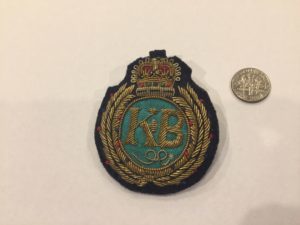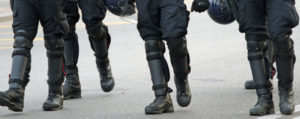Kathy Bennett's Blog
August 16, 2019
THE CRIME THAT STOLE MY INNOCENCE
My first recollection of a violent crime happened in 1966. I remember hearing a news report about eight student nurses in Illinois being murdered. I was ten at the time and couldn’t imagine how, and more importantly why someone would kill eight women. If you don’t remember this case, on July 13, 1966. An unknown assailant broke into a townhouse used as a dormitory for nursing students in Chicago and murdered eight of the nine women staying at the house. The sole survivor had rolled under a bed and hidden. So how did such a heinous crime take place?
The killer, Richard Speck was a high school dropout who first started drinking at age twelve and logged his first arrested at age thirteen. Most likely an alcoholic, he racked up dozens of arrests during the next eight years. At age twenty-one, he was caught and convicted of forgery and burglary and sentenced to three years in prison. He didn’t even serve half his sentence before he was paroled. A week later, he attacked a woman with a carving knife and was thrown back into prison on an aggravated assault charge with a sixteen-month sentence to run concurrently with a parole violation. Through an error, he was released just six months later.

He held a job as a truck driver where he had six accidents in his truck within three months. In a bar brawl, he stabbed a man in a knife fight. Again, he was charged with aggravated assault, but his lawyer got the charge reduced to disturbing the peace. He was held in jail for three days after not paying his $10 fine.
In March 1966, Speck burglarized a grocery store in Texas. The police issued a warrant for his arrest, but not wanting to go to jail for his 42nd time, his sister drove him to a bus station where he took a bus to Chicago, Illinois.
During the next few months, Speck raped a 65-year-old woman, ransacked her house and took the $2.50 she’d earned babysitting earlier in the evening.
Speck’s sister and brother-in-law tried to help him get work as a seaman at the National Maritime Union. Speck received an assignment on an oil tanker, but when he arrived, he found that his spot had already been taken.
The next week, a barmaid at a bar that Speck frequented was discovered dead. She’d died from a blow to her abdomen that had ruptured her liver. The police questioned Speck and asked him to stay in town for further questioning. When the police went to question him again, they discovered he’d left a few hours earlier. He’d left behind evidence from the rape of the 65-year-old woman, and other burglaries.
Speck spent the rest of the day in bars, where he met a 53-year-old woman. He took her back to his room, raped her, and stole her small pistol.
From there he went drinking and left…wearing all black, armed with a switchblade, and the handgun.

Speck broke into the dormitory where he tied up and held eight women for hours. He would lead them out one by one and strangle and/or stab them to death. Three of the victims had come home during the crime and were immediately killed. It was during the unexpected arrival of another victim that one of the bound nurses was able to roll under a bed. She figured that Speck must have lost count of how many women he had captured and tied up. That victim stayed hidden until hours after Speck had left. She was the only survivor.
Days later, Speck attempted to commit suicide at a hotel and was taken to the hospital. He was captured, when the doctor treating him recognized a tattoo that had been reported in the newspaper. What was the tattoo? The words: Born To Raise Hell.
Speck was sentenced to life in prison. In 1996 a news anchor received video tapes made at the prison in 1988. Those video tapes showed Speck and other inmates having sex, using drugs, and displaying a vast amount of money with no fear of being caught. Speck was seen in the video wearing women’s panties and flaunting female-like breasts (thought to be the result of smuggled hormone treatments). You can see and hear Richard Speck in prison in the link below.
**WARNING** – The video shows drug use, profanity, and other images that some people might find disturbing.
Speck died from a heart attack on December 5, 1991, the eve of his 50th birthday.
For me, this crime stole my innocence. I remember right after the murders I was afraid the killer would come to our house and slay me. Unfortunately, as I grew up, I learned there were people in the world who would and could kill without motivation—and it wasn’t the only time in my life where I’d see such depravity.
Until next time…remain vigilant,
KMA 367
June 24, 2019
SCAMS AND THE ELDERLY – PART 4
WARNING SIGNS OF ELDER FRAUD (And some of these indications aren’t just for seniors.)
You might see stacks of unsolicited mail saying the recipient is a “guaranteed winner.”
Or, you might notice an unusual number of packages containing inexpensive costume jewelry, plastic cameras, watches etc.
The senior might have excessive numbers of magazine subscriptions, or receive unsolicited phone calls from operators offering “fantastic opportunities” to claim prizes or invest.
Meanwhile the elderly person might have trouble covering basic expenses such as food and utilities, when their income should support those needs.
At the bank, the senior is accompanied by a stranger who encourages a large withdrawal. Or there a checks written and withdrawals for individuals, marketing companies, or other businesses that the elder cannot explain.
INDICATORS OF FINANCIAL ABUSE

A recent acquaintance expresses an interest in finances, promises to provide care, or ingratiates him or herself with the elder.
A relative or caregiver has no visible means of support and is overly interested in the elder’s financial affairs.
A relative or caregiver expresses concern over the cost of caring for the elder, or is reluctant to spend money for needed medical treatment.
Bills are not being paid.
The elder is isolated by a relative or caregiver who makes excuses when friends or family call or visit, and does not give the elder messages.
A relative or caregiver gives implausible explanations about finances, and the elder is unaware of or unable to explain the arrangements made.
Financial statements are sent to the relative or caregiver and are not accessible to the senior.
At the bank, the elder is accompanied by a relative or caregiver who refuses to let the elder speak for themself, and/or the elder appears nervous or afraid of the person accompanying him.
The elder is concerned or confused about “missing money.”
There are suspicious signatures on the elder’s checks, or the elder signs checks and another party fills in the payee and amount sections.
There is an unusual amount of banking activity, particularly just after join accounts are set up, or someone new starts helping the senior with their finances.
A will, power of attorney or other legal document is drafted, but the elder does not understand its implications.
WHAT TO DO – PREVENTATIVE
Be involved in your family member’s life. This is SO important.
My mother complained to me that she had ordered a magazine and she kept getting bills for them—even though she knew she’d paid. I took a look, and saw that the magazine was targeted toward’s seniors. There were two different magazines with almost identical names, (confusing to a senior) and there was a document on the packaging that stated: Don’t miss out, special savings, renew now for only $10.00—Don’t miss a single issue. When I called the publisher of the magazines, I discovered that my mother had paid for the two magazines subscriptions for the next six years! She was 87 at the time. The publisher refused to refund any of the money, and my mother passed away before her subscriptions ran out.
Was this elder fraud? Not by the legal definition, but it was morally wrong…and it’s my opinion the publisher knew exactly what they were doing.

In another instance, my brother (who’d had a stroke and was partially paralyzed) came across a woman he’d dated years before his stroke. Suddenly, she was driving him to the store, and over to her house to listen to music. Due to his stroke, and diminished mental capacity, I was handling his finances. I wasn’t overly concerned with his new “friend” until he mentioned he was giving her gas money. Then I checked his bank account and saw that she’d written herself a check for $200.00, which he’d signed. Since they’d only been hanging out together for about a week, I knew there was no way she’d driven him far enough to justify a $200.00 check. I confronted her, and convinced her she should give the money back.
Try to get an understanding of your senior’s finances and how they’re handled. Know where things are kept and how many accounts and numbers.
Is there life insurance? If so, where are the policies?
If your loved one is in a care facility, show up at unexpected times and unannounced. Show up often and know the staff. Be interested and invested. Your loved one benefits because the staff knows YOU care.
WHAT TO DO – AFTER A CRIME
Notify the bank. The bank employees are often in a good position to note suspicious activity, such as a sudden withdrawal of large sums of money or use of an ATM card by an elder who is housebound.
Contact Adult Protective Services (APS) – a government-affiliated agency charged with investigating reports of elder financial abuse and offering assistance to victims.
Alert law enforcement. The police or local prosecutor’s office will often intervene when there is good evidence that a crime is being committed.
So, that wraps up this series about SCAMS AND FRAUD – THE ELDERLY.
I hope you’ve enjoyed the series and learned something.
Until next time,
Remain vigilant
KMA 367
May 24, 2019
SCAMS AND THE ELDERLY – PART 3
In the previous two blogs, I explained why the elderly make desirable targets for fraud and then told you about some of the scams a senior might face.
In Part 3, we’ll look at a few more scams and who is most likely to take advantage of an elderly person.
One popular fraud is when someone calls a senior on the phone. “Hi Grandma? Do you know who this is?” The elderly grandparent makes a guess at one of their grandchildren’s name. The scammer now has a fake identity and will ask for money to help with a financial problem—sometimes saying they need to be bailed out of jail…they’ll ask funds be sent via Western Union or Money Gram which don’t always require ID to collect. They end this call with: “Please don’t tell my parents.”

This next example happened to some seniors who lived in a mobile home park. The older couple was sitting out on their front porch, and a car pulled up with a young man and woman inside. They exited their vehicle and in a big show of excitement greeted the couple saying they’d been their neighbors a few years prior and were so happy to see them. The couple couldn’t place the younger pair, but were embarrassed to say so. The female asked if she could get a glass of water, and the male said he needed to use the restroom.
The couple took the youngsters into their home. The girl made a big deal of engaging both the elderly husband and wife in conversation while the boyfriend roamed through the back of the house ransacking and grabbing items of value from bedroom and office. This is called a distraction burglary, and it is often done with pairs of people who are looking for a “lost ball” from a backyard, or two guys dressed in hardhats and vests doing an “inspection.”
Another common case of fraud is to tell a senior they’ve won a big contest or sweepstakes…all they have to do is pay the “fees and taxes.”
If your senior loved one is alone, be aware of potential suitors who woo lonely older folks. These types of scams are called “Sweetheart Scams.”
Do the elderly people in your family wear hearing aids or have a safety alert bracelet or necklace? Scammers convince seniors that they need some goods or services, then seriously overcharge them—often hiding the high cost in extravagant schemes involving interest and installment payments. This tactic is often used for products essential to a senior’s quality of life.
So what kind of monsters would take advantage of the elderly? Often it’s the victim’s friends, doctors, lawyers, accountants, and paid or volunteer caregivers…and the worst of all—family members.

Over 90% of all reported elder abuse (including physical) is committed by the senior’s own family members…most often their adult children. Common tactics include depleting a joint checking account, promising but not delivering care in exchange for money or property. Often these crimes start with small-value transactions, which escalate over time.
Fraudulent operations compile the names of fraud victims on “sucker” lists and sell them to one another. The lists offer a shortcut to “cold calling” or random-number dialing. The people on the lists have already shown themselves susceptible to fraud.

Not only are past victims retargeted, but they can also fall prey to scammers offering to help them recoup their losses from previous frauds. Fraudulent operations called “recovery rooms” approach past victims and offer to investigate the original fraud and to return the lost funds—for a fee. Once the victims pay the recovery fee, the scammer disappears.
Next month I’ll show some of the warning signs of senior fraud, indicators of financial abuse, what to do proactively, and what to do after a crime.
Until next time,
Remain vigilant
KMA367
April 17, 2019
SCAMS AND FRAUD — THE ELDERLY – Part 2
In my last blog, I talked about why the elderly are prime targets for scams or fraud.
In this segment, I’ll talk about some of the common frauds perpetrated, and share personal stories of how some of my friends and loved ones were affected by criminals.
Most of us have received a phone call from someone claiming to be the IRS and that we owe back taxes, and if we don’t send money immediately, a warrant will be issued, and we’ll be arrested. Or, they may say you have a refund and try to trick you into sharing private information. The scammer demands the victim to send cash, usually through a wire transfer, gift card, or prepaid debit card. They can also use “robo-calls” or send a phishing email. They can alter caller ID number to make it look like it’s the IRS calling.
Most of us know these contacts are false and hang up. However, a lot of elderly people fall for the scams.

I had an elderly friend, I’ll call her Mary. She had an elder friend named Doug. Her friend Doug had been taken in by scammers and he lost everything—over $250,000. When Doug was out of money, the scammers got aggressive and mean, and asked him if there was someone else who could loan him money. He said maybe his friend Mary. The scammers asked for Mary’s phone number and called her.
Mary was in her late 80’s. She was still fairly strong mentally, but she was no match for the scammers. They got her address and used online maps and photographs to describe her house and property, threatening her that they would come and get her if she didn’t pay them money. They would call her as often as twenty times a day. Although she was told not to answer or engage with them, she thought she could outsmart them. When the calls became too much, she called me. Ultimately, I convinced her she had to change her phone number. She didn’t want to do it because she’d had the same number for over forty-five years. She eventually realized that changing her number was the only way out. While the scammers didn’t get any money from her (that I’m aware of) they disrupted her life for at least eight months.
I just got this information a few days ago—and I don’t believe it’s exclusively targeting the elderly—they could be targeting anyone. In my state (Idaho) scammers are now targeting victims via the US mail. The attorney general said: “These mailings are particularly concerning because they show scammers are researching actual tax records and then tailoring their scam attempts specific to individuals.
If there’s ever any reason you question the legitimacy of a tax document you receive in the mail, call tax officials—NOT using the phone numbers provided on the mailing. Be especially suspicious of anything that aggressively demands payment in a short amount of time.” Be aware these mailings looked official and threatened to take the recipient’s Social Security benefits, wages, bank accounts, and federal tax refunds. The mailer demanded payment of more than $9,600. It stated a working phone number that was answered by a man identifying himself as a representative of “the American Tax Group.”

Another scam can be performed by tradespeople. Something goes wrong with the house, the car, or an appliance. A repairperson agrees to fix the problem but demands payment up front. Once they start the work, they “find” a more serious problem with a more expensive solution.
In a different type of fraud, the crooks may pose as a Medicare representative to get older folks to give them their personal information, or they will provide bogus services for elderly people at makeshift mobile clinics, then use the personal information the victim provides to bill Medicare and pocket the money.
A long-running and famous scam is the pigeon drop. In a typical pigeon drop, two suspects approach an older person—often in a shopping area or near an ATM machine. They claim they’ve just found a wallet containing a large amount of money. One suspect volunteers to check with and accountant or an attorney to get advice on what to do with the found money. The suspect returns and says they’ve found out the money came from an illegal source such as gambling or narcotics.
The scammers offer to split the money, but only after the elderly person shows “good faith” by producing money of their own. After the senior has given the suspects their own money, the crooks send the senior to the accountant/attorney to collect the promised share of the money. Of course, there is no accountant and/or attorney and the suspects have disappeared.
In another scam, a scammer will wait in in a parking lot for an elderly person to get in their car and back out of a paring space. The crook pretends to get hit by the senior. The elderly person is usually shocked, apologetic, and flustered. The scammer threatens to call the police and the senior’s insurance company…but if the senior is willing to give them cash to cover the medical expenses, they can pretend it never happened.

Believe it or not, this scam happened to one of my doctors. He related his story when I was there for my yearly exam. He was a kind, elderly man, and it was easy for me to see how the scammer had picked the perfect victim. Worse yet, this occurred in the area where I was working as a police officer. My poor doctor was beside himself, but grateful he’d only lost $20.
In my next blog, I’ll relate some more scams and who perpetrates them. I think you’ll find some of the information surprising.
Until next time,
Remain vigilant
KMA 367
March 19, 2019
SCAMS AND FRAUD — THE ELDERLY — Part 1
When my brother had a stroke and was partially paralyzed, I saw how easy it was for him to become a victim of scams and fraud. Then, when my mother developed Alzheimer’s disease, I saw how she too was taken in by a slick business.
In this multi-post topic, I’ll talk about why the elderly are targeted, some common scams and frauds, and lastly how to recognize signs of fraud and what to do about it.
Why the elderly are targeted for scams and fraud?
Seniors are often targeted for financial crime and the crimes are so prevalent there considered a crime of the 21st century. There are about 5 million cases per year of consumer fraud or financial abuse against the elderly—and only one out of 25 crimes are reported.

Seniors are targeted because:
Crooks often think seniors have significant money sitting in their bank accounts. The belief of wealth sitting in banks may be misguided, but if a senior even has a small pension or nest egg, scammers won’t hesitate to take any or all of it.
Many seniors may be lonely, willing to listen and are more trusting than younger individuals. One thing I noticed with both my brother and my mother was that they were both extremely trusting—not only of me, but anyone that crossed their paths. Although my brother was in his late 50s, and my mother in her 90s, they each were childlike in their trust and understanding. That’s a sobering thought and one that’s easily exploited.
The elderly are easily confused—and don’t want to admit they’re not sure what’s happening. A lot of times seniors will become angry and defensive if you start noticing that things are off in their financial world. Many seniors have already lost their independence by not being able to drive anymore, and to admit they’d been taken in by a fraudster is only further evidence they can’t take care of themselves. They aren’t going to want you to know they’ve been a victim. If victimized, seniors are fearful–or more likely embarrassed to report they are a victim of fraud.

Especially at risk our are seniors who are isolated, lonely, physically or mentally disabled, and unfamiliar with handling their own finances, or have recently lost a spouse. I remember a story that my mother told me where her mother (who suffered from dementia) had been befriended by a pastor at a local church, and that my grandmother had been persuaded to donate most of her money to the church…even though she wasn’t of sound mind. Once the money was gone, there was nothing that could be done.
In my next post, I’ll talk about the different kinds of scams that are out there, and some personal experiences with people I’ve known.
Until next time,
Remain vigilant
KMA 367
February 12, 2019
I LOVE A GOOD MYSTERY
A few weeks ago, I received a surprise package from one of my previous bosses. He’d found an item in a thrift shop many years ago and because it contained the initials KB (his initials) he picked it up. He recently discovered the item, and not knowing what to do with it, sent it to me…a fellow person with the initials KB.
It contained a cloth pin that appeared to possibly have been created from some uniform patch. I say that based on the fact the backing seemed similar to patches I’d had on my LAPD uniform. But maybe not.
I posted a couple of pictures on Facebook, and in my Facebook reader, and SWAT Team group. While there were some clues, none of those panned out to be similar to the piece I was holding in my hand.
So, I’m reaching out to the world. Someone out there must know about this piece.
Do you know someone who is a history buff, or interested in heraldry? Please pass the link of this blog on to them. Feel free to share the link for this blog. This is one of those things that is going to drive me nuts until I know where this piece came from.


Until next time…remain vigilant.
KMA367
November 8, 2018
WHO WAS THE BETTER LIAR? THE COP—OR THE ARRESTEE?
It doesn’t take long for a police officer to realize that many—if not most people they talk to are lying to them. Call me cynical, but after you’ve worked in a black and white patrol car for a few months, people lying to you are a given.
I remember a time when I was working with an Academy classmate of mine and we got a radio call for a child abuse investigation.

When we arrived at the scene, the victim who was a male about 13 years old told us his dad had beat him with an extension cord. The kid had the welts on his back to prove it. After making arrangements for the boy to get medical treatment and be cared for (I don’t think there was a mother in the picture) we took his father to jail.
This was the early 90’s and police cars did not have dividers between the front seat of the patrol car and the backseat. When a suspect was transported to jail, the passenger officer would sit in the back seat with the arrestee to assure the arrestee did not attack the driving officer or try to escape.
When I rode in the backseat with arrestees, I tried to distract them from the fact they were going to jail. I’d talk to them about their life or their family. In this instance the arrestee told me this arrest was not the first time he’d been in trouble with the police. He went on to tell me that he had prior arrests for illegal drugs. He also said that he’d been living the straight and narrow for the past few years and that today he’d really screwed up. He said he didn’t mean to inflict the injuries on his son, but the boy had gotten mouthy and belligerent. “He’s a teenager and thinks he knows it all.”
There is not a doubt in my mind that part of what this father said was true. I’m sure the kid knew just what buttons to push with his father. But I also know there are no excuses for leaving injuries to the boy’s back—so severe, they needed to be treated by a doctor.
I did not have one iota of sympathy for the man sitting beside me in our patrol car. But telling that man my true feelings would serve no good purpose and could make his booking process harder on all of us.
So instead of upbraiding him, I told him that just because he’d had a setback, didn’t mean that he had to continue in a downward spiral. I told him if it was true he’d been clean since the last time he’d been in prison it wasn’t too late to turn his life around. I told him that he should use the experience to better himself and vow to himself and his son that he would be a better parent and a better example.
Remembering that he’d said he had prior drug arrests, I asked him if there was any chance he had drugs concealed somewhere on his person. The reason I asked was because it was a lot easier for us to deal with the drugs priorto the booking process than if they were discovered duringbooking. Our arrestee assured us that he had no drugs on him.
Once we got to the jail, my male partner took our arrestee into the jail to be booked. Back then, felony arrestees were always strip-searched, and because my partner and arrestee were both males, he got the duty. While he was busy booking our arrestee, I began writing our arrest report.

Later my partner came out of the jail and tossed an evidence envelope on the desk next to me. I asked what was in the envelope.
He said, “Our arrestee was holding cocaine.”
“What?” I asked in disbelief. “We asked him several times if he had dope on him. We told him it was no big deal. Where was it?”
“In his wallet.”
“He knew we’d find it. Why didn’t he own up to it?”
My partner shook his head. “He said he didn’t want to disappoint you. You had such faith in him that he could do better and be a better father. You believed he would turn his life around and he didn’t want you to see that he had lied to you about the dope.”
I have to say, I was floored. My “faith-filled words” were merely making conversation on our way to the jail so our arrestee didn’t start thinking about going back to prison and decide to headbutt me or try to jump out of the car. I can only hope, for the sake of his son, that our arrestee did his time and tried to live up to the image I’d painted for him…however my cynical side thinks it’s highly unlikely.
August 6, 2018
OFFICER-INVOLVED SHOOTINGS—YOU ARE THERE
Prior to my retirement, the LAPD was making noises about equipping each patrol officer with a Body-Worn Video (BWV) camera. The patrol vehicles are also equipped with cameras. Most of the officers I knew were suspicious of how the cameras and the images they captured would be used by the department. I retired before the BWV cameras were implemented at my division. (And no, the cameras were not the cause for my retirement.)

Whether the officers like it or not, they are now wearing those cameras. Additionally, some of the video captured by the cameras are now being posted on the LAPD’s YouTube channel by the department. They’re calling them Critical Incident Videos. This is a relatively new program, and I’m sure it will evolve over time.
The Los Angeles Police Protective League whose mission is to vigilantly protect, promote, and improve the working conditions, legal rights, compensation and benefits of Los Angeles Police Officers, has been working tirelessly to be sure that officer’s rights aren’t getting trampled in the process of releasing the Critical Incident videos to the public.
This blog isn’t going to get into the issues and concerns the releasing of these videos has for the involved officers—that fight should be fought by those who have much more knowledge on the subject than I do.
What I want to focus on is how these videos put you, the public, right in the officer’s shoes.

What I want you to see and understand is that police work, especially for officers who are on patrol, can go from boring to life-and-death decisions in a matter of minutes, and even seconds.
team of policemen and carabinieri patrolling of the city before the arrival of Heads of State City
The officers involved in the videos I’ve included in this blog didn’t have the opportunity to make their critical decisions the next day or the next week after all the videos had been downloaded and reviewed by investigators—and later the media, numerous times.
The officers lived these incidents in real time—mere seconds. As you watch the videos, and while you’re in the officer’s shoes, I want you to think what you would have done. I understand that you haven’t received the training that the officers have. Trust me, the officers are assessing and evaluating the situation and their options. Their minds are full.

As you experience this “behind the badge” view, just think about questions that the officers won’t have time to think about until after the incident is over—How are my actions going to be perceived by the media and the public. Am I going to get sued? Is this incident going to become a political “hot topic?” If you just think about those three things while you’re in the officer’s shoes, and making life-or-death decisions in a matter of seconds, I think you’ll see how heroic these police officers are.
I will say that the videos the LAPD has released are done professionally and lay out the facts of the incidents. What the videos won’t show you are the after effects of being involved in a critical incident. I’ve been in a number of critical and emotional incidents myself, and each officer deals with them in their own way. The LAPD provides resources to the officers after an incident such as the ones in videos on this blog.
This incident clearly shows the suspect was not affected by the less-than-lethal weapons deployed. In that instance, would you do? You’ve only got seconds to decide.
Within the past few weeks, LAPD officers have been involved in shooting situations where an innocent victim was killed—by police officers on scene. This is an officer’s biggest fear. My respects to the victim’s families. Here are videos from those incidents.
Another situation where the less-than-lethal weapon did not work. What would you do?
Many of you saw media coverage of the incident of the hostage situation a few weeks ago at a Trader Joe’s. This is video the LAPD released to the media. There are three segments to this video: The video from the patrol car dashboard, the driving officer’s BWV, and then the passenger officer’s BWV. When the passenger officer gets out of the police vehicle, you will see something roll on the ground. It’s a flashlight—I assume the passenger officer’s.
I ask you to pay attention to the suspect as he gets out of his vehicle. He is immediately shooting at the officers. Did you see the muzzle flashes? What would you do? After the officers run to cover behind the wall, you will hear a ping from one of the suspect’s bullets hitting the metal pole near the officers.
I hope this blog and these videos have given you some insight into what it feels like to be a police officer in the moment of a critical incident. And while these videos are enlightening, nothing compares to being there at the time. Nothing.
Being a police officer is not for the faint of heart. Cops do a job that most don’t want to do or can’t do. Unless you’re prepared to do the job, show your police officers respect.
Until next time…remain vigilant.
KMA 367
July 3, 2018
15 HOTEL SAFETY TIPS
With summertime travel in full swing, I thought it might be helpful to provide a few safety tips for when your adventures have you staying at a hotel. There are many things to be aware of when traveling. I’m highlighting some of the key things.

1. The most obvious consideration is to choose a suitable hotel.
Select a secure hotel. Examine the neighborhood around your destination. Every city has its seedy sections. Remember: location, location, location. Hotels that have limited access to hotel structure, generally the more limited the access; the less likely a trespasser will enter.
2. Don’t be gender-specific when reserving a room.
Provide only your first initial and last name.
3. Don’t stay on the ground floor.
The ground floor is the easiest to access for non-guests and intruders. Ask for a room a few floors up–though not too high in case of a fire or natural disaster.
4. Have the front desk employee write down your room number rather than announce it aloud.
No one in the lobby needs to know what room you’ll be in. I think most hotel employees are pretty savvy to this tip, but if your check-in clerk screws up, ask for a different room—and ask them to writethe room number down.

5. Stay with your luggage throughout the check-in process.
Don’t get distracted and turn your back on it. If the lobby is busy, crooks can take advantage of the distractions, and walk off with your property. A smart thing to do is when speaking to the front desk employee, place your luggage between yourself and the desk.
And if no one notices this guy running off with your luggage you're staying in the wrong hotel!
6. Ask for a couple business cards when you check in.
Keep one by your hotel phone in case of an emergency and keep one in your wallet. You never know when something will come up and you’ll need your hotels address or phone number.
7. When you board an elevator, if possible, position yourself near the elevator control panel. If attacked, push as many floor buttons as possible.
Keep your back to the sidewall. If someone board the elevator and makes you uncomfortable, or they seem suspicious, exit as soon as possible.
8. When you get to your room, check it out.
Before you unpack, inspect the room to make sure all windows and doors have functioning locks.
9. Keep the door locked.
This is a no-brainer, but it can be easy to forget. Make a habit of locking your door as soon as you enter the room. Always use the deadbolt and the secondary lock, if there is one, regardless of how excessive it may seem.
10. Don’t open the door to strangers.
You’re probably thinking: I wouldn’t do that. It may be less obvious, however, if the stranger claims to be a hotel employee. If you’re not expecting anyone, call the front desk to verify. When you do open the door, keep the security chain (or secondary lock) engaged until you’re absolutely certain it is a hotel employee.
11. As much as possible, avoid solitary situations.
You want to minimize time in unsecure environments. For example, if you’re waiting for taxi, stay in your lobby until it arrives. If you can to afford to valet park your vehicle, do so.
12. Call for room service rather than leaving a card on your door.
You don’t want to alert anyone that you’re occupying the room alone.
13. Leave extremely valuable items with the front desk.
Many hotels do not accept liability for items left in guestroom safes. Be sure to get a written receipt for anything you leave at the desk.

14. To deter theft, provide the illusion that someone is in the room when you go out.
This can be accomplished by keep the “Do Not Disturb” card on your door and turning on the television when you go out. I suspect career criminals are aware of this tactic, but it might give a newbie thief second thoughts.
15. Be sure to identify the fire escape route and locate the nearest stairwell as well as the emergency exits.
You should also consider having a pair of sturdy shoes right by the bed so if you have to get out in a hurry you’re not fumbling around looking for footwear or fleeing in flip-flops.
These are just a few things to think about when you’re traveling.
What are your favorite travel safety tips? Until next time…
Remain vigilant,
KMA 367
June 13, 2018
Home Safety While You’re On Vacation
As spring evolves into summer, many of us will be going on vacation. Here are some tips to help your house to looked lived-in while you’re away.

Lock your house. Don’t just lock the doors, but also windows, garage doors, and pet doors. Also disable the automatic feature on your garage door to stop potential thieves from using a universal remote to open your garage. Check to see if your garage door has a bolt that can be thrown from the inside (much like the lock on a bathroom stall). Just remember when you come home you’ve thrown that lock. Other ideas…
Install light-sensing exterior lamps that will turn on at dusk and turn off at dawn.
Set interior lamps on a variable timer in several places throughout the house to come on and go off at different times throughout the day.
Put a timer on a portable radio and leave it on a news station.
Although it may dampen some of your spontaneity, keep your trip plans to yourself when on social media and don’t post trip updates or photos until after you return.
Arrange to have newspapers and mail stopped. You can easily put both on a vacation hold. Or have a trusted family member or neighbor pick them up.

Ask a neighbor to check for any deliveries or packages left at the front door.
Alert local police that you will be away. Some agencies will even to vacation checks while you’re gone (as available time allows).
Do you keep a spare house key hidden outside, just in case you forget yours? If so, be sure to remove it before leaving on your trip. Savvy thieves will look in the most likely hiding places for spare keys.
If you will be gone more than a week, arrange to have someone trustworthy mow your lawn.
Alert your bank and credit card companies that you will be traveling. This will help avoid unnecessary credit card declines while you are away, leaving you to make an unexpected cash transaction.
Don’t leave trash cans sitting on the curb all week. That's a clear sign that you're not around. Bring them back inside before leaving on your trip or ask a neighbor to wheel them out of sight after they are emptied.

Are these tips fool-proof? No. But anything you can do to make your house a less attractive target for burglars is well worth the time.
Until next time…remain vigilant,
KMA367



